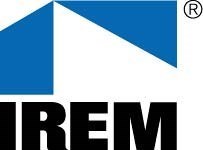
Whether you are dipping your toe in the real-estate buying pool for the first time, or you’re soaking in it after purchasing numerous properties, the Institute of Real Estate Management (IREM) is an organization to take note of.
With close to 18,000 individual and over 535 corporate members, IREM was founded in 1933 to be an “international community of real estate managers across all property types dedicated to ethical business practices and maximizing the value of investment real estate.”
“IREM,” says public relations manager Sharon Peters, “believes that management matters and that good management translates into value. Simply put, well-managed properties improve the quality of life for the people who live, work and shop in them.”
“IREM,” she says, “also believes in professional ethics, and in the power of knowledge and the importance of sharing it. IREM is the only professional real estate management association serving both the multi-family and commercial real estate sectors and has 80 U.S. chapters, 13 international chapters, and several other partnerships around the globe.”
The organization was founded out of necessity in 1933 during the Great Depression when a group of 14 individuals came away from a meeting of the National Association of Real Estate Boards (NAREB) (known today as the National Association of Realtors or NAR) with concerns about real estate firms abusing the power that comes with the financial responsibility of managing property for others. Months later, one hundred management firms petitioned NAREB to form IREM, and in 1934, the association was officially formed.
According to Peters, “At the first recorded meeting of the organization, the participants reviewed the group’s new bylaws, which set forth the following organizational goals: to establishment of a code of ethics and standards of practice, identification and registration of responsible and competent managers and management agents of real estate, establishment of coordinated standards and units for scientific recording of the experience in the management of real estate, the exchange of management experience and the fostering of knowledge, integrity and efficiency in the management of real estate.”
The Group’s Mission
IREM’s strategic principles are “broad, clear statements of direction that create drive and purpose, serving as an organization-wide rallying cry,” says Peters. The first principle is to “organize for growth.” IREM’s business platforms and networks are aligned for and directed towards growing the organization with respect to membership, product sales, course enrollments, influence, and revenues. Secondly, the aim is to “manage for quality” in which the organization focuses its attention on producing top-quality educational programs and informational products and services. Thirdly, “building community” is important to engage members of the professional real estate management community at the local, regional national, international and even virtual levels. IREM also seeks to “market” and advance its presence through deliberate, systematic marketing methodologies and purposeful communication efforts. Lastly, it’s important to focus on “industry issues.” IREM seeks to be as member-centric as possible providing a comprehensive, trusted, relevant source of knowledge and information about and offering support for the real estate management industry.
Getting It
IREM understands that the primary responsibilities of real estate managers encompass a varied list. From managing the physical real estate site, to managing off-site and on-site personnel, management of funds and accounts and management of leasing activities and tenant services. Because of this diverse list of duties, a competent, qualified manager is a valuable commodity for any condominium community.
To meet the real estate market’s need for qualified property managers, soon after IREM was formed, the organization began offering classes to aspiring managers; the first course was presented in 1936. In the years that have followed, IREM has promoted ethical real estate management practices through its credentialed membership programs, including the Certified Property Manager® (CPM) designation, the Accredited Residential Manager® (ARM) certification, the Accredited Commercial Manager (ACOM) certification, and the Accredited Management Organization® (AMO) designation. According to the organization’s literature, these credentials certify competence and professionalism for those engaged in real estate management. IREM also offers CPM candidate, associate, student, and academic memberships. All members are bound by a strictly-enforced IREM Code of Professional Ethics.
“The cornerstone of IREM’s professional development mission is education,” Peters says. IREM education helps managers work better, faster and more professionally by identifying the critical competencies they need to successfully manage real estate assets and then provide the theoretical and practical training required to master those competencies.
IREM courses deal with the day-to-day requirements for managing a property’s operations in addition to presenting the bigger picture of the real estate marketplace. Coursework is updated every three years with input from organized groups of experts to ensure that they are contemporary, challenging, and well-written.
Peters adds a new array of delivery options was rolled out a few years ago for IREM’s many course offerings—ranging from traditional classroom to the latest self-paced learning formats available 24/7. “Our upgraded education program, known as IREM ED, presents wide choices of what content students can study, the time schedule they prefer, and the information channels through which they’ll get it.”
IREM member Julie Muir, a CPM from Portland, Oregon discusses the benefits of being in the organization. “The benefits of being an IREM member are extremely wide: the contacts that you get, the people you meet, the experience you can have, volunteering for committees, and being involved with on the chapter level. It’s extremely rewarding, it’s a place to grow and to learn. It’s been everything that I’ve expected and more.”
In New York, IREM organizations include the Greater New York Chapter No. 26, located in St. Albans. Sheila Still is executive director. The chapter officers include President Diana Bosnjak; 1st Vice President Frank A. Socci Jr.; Secretary Edward Andron; and Treasurer Nicholas Stolatis. Other NY-based chapters are the New York Capital Region Chapter No. 93 headquartered in Albany, where Glen Ward is the association executive, and Jesse Holland, chapter president, and the Rochester-Western New York Chapter No. 58 located in North Chili in Monroe County, where Nanette Stubbe is the association executive, and Steven Savoca, chapter president.
Recent local course offerings at the chapter level included topics ranging from Successful Site Management to Sustainable Real Estate Management. IREM members also hold an annual golf tournament and participate in events like local real estate-related trade shows. For example, IREM/BOMA Rochester conducted its annual trade show on September 13.
Keeping On the Up-and-Up
Not only does IREM back up its mission through educational programming, it also does so through its organizational ethos. “While IREM is best known for education,” says Peters, “the IREM Code of Professional Ethics—to which all IREM members must pledge to adhere, and which is rigorously enforced—is certainly the backbone. This commitment distinguishes IREM members from others in the industry. At a time when business conduct increasingly is scrutinized, owners and investors as well as tenants and residents can be confident that IREM members will protect their interests scrupulously.”
Irving Blue, CPM, a IREM member and past president of the St. Louis, Missouri, chapter, says, “The CPM designation, and having a significant organization like IREM behind me, has really helped me to maintain my level of ethics. The designation continues to help me strive and stay focused and make sure that I’m providing the best service to my owners, as well as the client.”
IREM further provides for its members by offering its award-winning bimonthly magazine, the Journal of Property Management, and, says Peters, “producing conferences and seminars that are rich learning and networking experiences. These events, plus others produced locally by IREM chapters, stimulate participants to network about real-life, day-to-day situations and share problem-solving solutions. “IREM also regularly presents webinars free to IREM members, some of which are presented by IREM members and other industry experts.”
More to Come
With a strong foundation rooted in education, ethics and networking/communication, IREM looks toward the future with positive eyes. Peters notes that “IREM volunteer leaders and staff will always work hard to keep the organization’s fingers on the pulse of the changing needs of the marketplace, to help members anticipate what’s ahead to the extent they can, and to help them respond effectively to changes that sometimes can’t be anticipated.”
In addition, she says that “IREM strives to constantly research and update its education programs to ensure that course content aligns with the needs of the industry. IREM is also in the forefront of developing new resources to help members and the industry deal with the critical issues facing them.”
According to the group’s literature, though the market is ever changing, real estate management continues to grow as a profession because “simultaneous growth of the population and its requirements for space has increased the total number of all types of buildings, a larger percentage of real estate is considered investment property and there is increasingly wide acceptance of the fact that real estate management requires special training and education.”
“We see ourselves providing more learning experiences in ways our members want them,” says IREM CEO Russ Salzman. “We aim to be available 24/7 online, through home study, webinars, live classrooms, publications. Podcasts, social networks, you name it. In simple terms, we’re going to deliver members value in every way that technology and humans can capture it.”
As real estate management grows as a profession, IREM's leaders and members are working diligently to stay ahead of the curve and identify and educate on the critical industry issues like trends, challenges and advancements that might have a significant impact on the real estate management industry and its practitioners. These include building operating efficiency, capital availability, technology and marketing, workforce management, tenant demands, demographic impacts, property foreclosure and workouts, government intervention, sustainability/energy conservation, and reputation management.
As Peters says, IREM's goals for the future are “to be the primary source of education and knowledge for the real estate management profession, that real estate owners and investors will seek out IREM’s professional real estate managers to manage their properties and that people will realize that their lives are improved by living, working, and shopping in properties professionally managed by individuals and companies with IREM credentials.”
Rebecca Fons is a freelance writer and educator living in Chicago and a frequent contributor to The Cooperator.






Leave a Comment